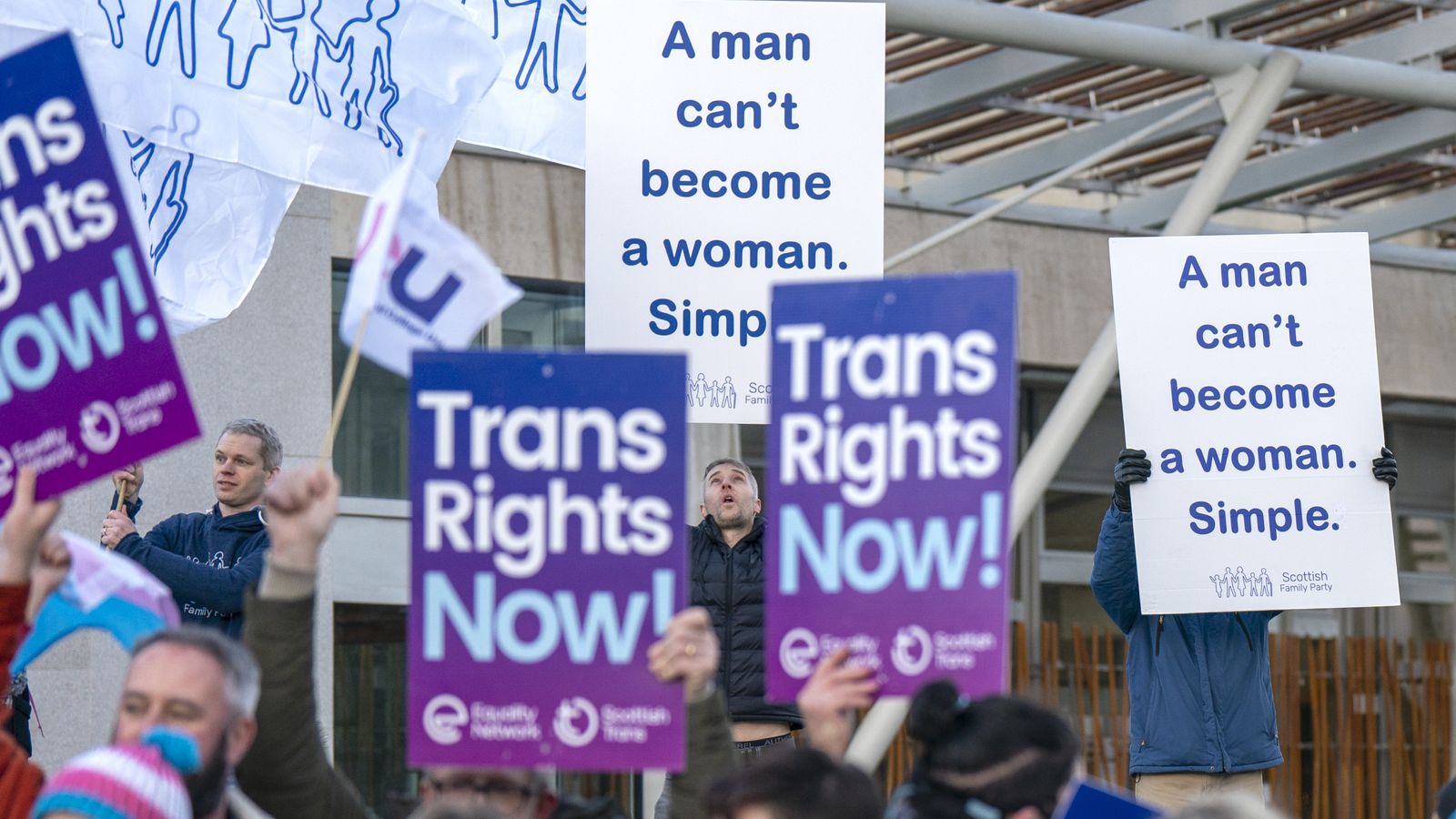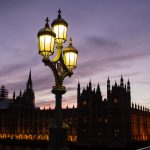The UK government has blocked Scotland’s gender reform bill in an unprecedented intervention that is likely to spark a constitutional row between the two parliaments.
Downing Street has the power to stop legislation from Holyrood receiving Royal Assent – the final stage of any new bill – if it believes it will have an adverse impact on UK-wide law.
Scotland Secretary Alister Jack has confirmed he will lay a section 35 order at Westminster tomorrow to prevent the legislation being sent to the King for Royal Assent.
In a statement, he said: “I have not taken this decision lightly.”
In the 25 years since devolution, no British government has taken this step – until now.
Politics live: Results of teachers’ strike ballot in England and Wales expected today
The Gender Recognition Reform (Scotland) Bill was passed by a majority of MSPs last month, with First Minister Nicola Sturgeon hailing at as a “historic day for equality”.
Rishi Sunak poised to block Scotland’s gender reform bill
We should soon find out if Sunak and Sturgeon’s ‘constructive’ partnership will last
Scotland to gain two new freeports in Firth of Forth and Cromarty Firth following successful bids
The new legislation would lower the age people can apply to change their gender to 16, remove the need for a medical diagnosis of gender dysphoria for a gender recognition certificate (GRC), and reduce the time an applicant needs to live in their acquired gender.
But while the bill has been welcomed by equality campaigners, UK ministers fear it may lead to gender tourism and that people who change gender in Scotland would have a different legal gender when they are in the rest of the UK.
Critics of the legislation are also concerned organisations offering single-sex spaces would have to adopt different policies.
Announcing the move the block the gender reform bill, Mr Jack said: “I have decided to make an order under section 35 of the Scotland Act 1998, preventing the Scottish parliament’s Gender Recognition Reform (Scotland) Bill from proceeding to Royal Assent.
“After thorough and careful consideration of all the relevant advice and the policy implications, I am concerned that this legislation would have an adverse impact on the operation of Great Britain-wide equalities legislation.
“Transgender people who are going through the process to change their legal sex deserve our respect, support and understanding. My decision today is about the legislation’s consequences for the operation of GB-wide equalities protections and other reserved matters.
“I have not taken this decision lightly.
“The bill would have a significant impact on, amongst other things, GB-wide equalities matters in Scotland, England and Wales. I have concluded, therefore, that this is the necessary and correct course of action.
“If the Scottish government chooses to bring an amended Bill back for reconsideration in the Scottish parliament, I hope we can work together to find a constructive way forward that both respects devolution and the operation of UK parliament legislation.
“I have written today to the first minister and the Scottish parliament’s presiding officer informing them of my decision.”
Earlier today, Ms Sturgeon said “it would be an outrage” if the UK government were to block the bill.
In a briefing on NHS pressures, she accused UK ministers of “using trans people as a political weapon”.
“In my view there are no grounds to challenge this legislation,” she told reporters.
“It is within the competence of the Scottish parliament, it doesn’t affect the operation of the Equality Act and it was passed by an overwhelming majority of the Scottish parliament after very lengthy and very intense scrutiny by MSPs of all parties represented in the parliament.
“So if there is a decision to challenge, in my view, it will be quite simply a political decision and I think it will be using trans people – already one of the most vulnerable, stigmatised groups in our society – as a political weapon.
“And I think that will be unconscionable and indefensible and really quite disgraceful.”
The first minister said the move to block the legislation would create a “very, very slippery slope indeed”, adding that it could “normalise” and “embolden” the UK government to do the same in other areas.
“I think it is that serious. I think the import and significance of this would go beyond the particular subject matter of the legislation”, she added.
Ms Sturgeon said the Scottish government would “robustly and rigorously and with a very, very high degree of confidence” defend the bill.
Prime Minister Rishi Sunak has previously said it was “completely reasonable” for the UK government to consider blocking the reforms.
At the weekend, Labour leader Sir Keir Starmer voiced his concerns with the legislation, saying 16 was too young for such a decision to be made.
The bill was backed by the Scottish Labour Party, with the exception of two MSPs who resigned their frontbench positions to vote against it.






















